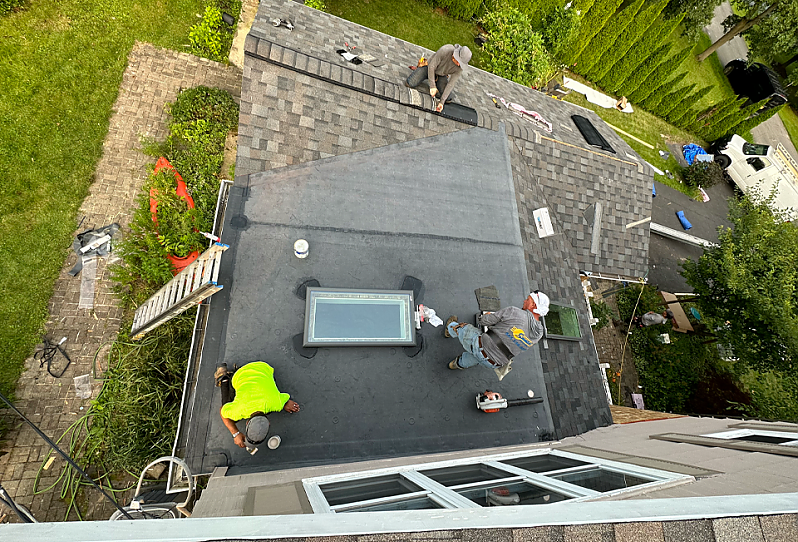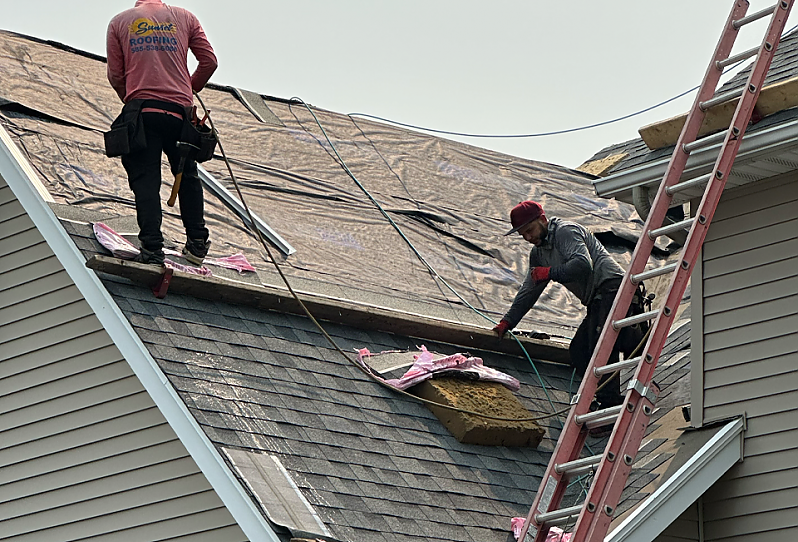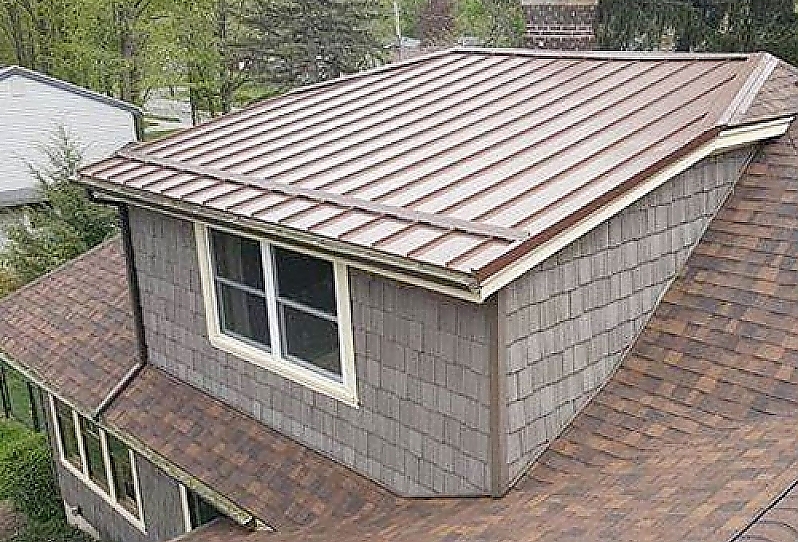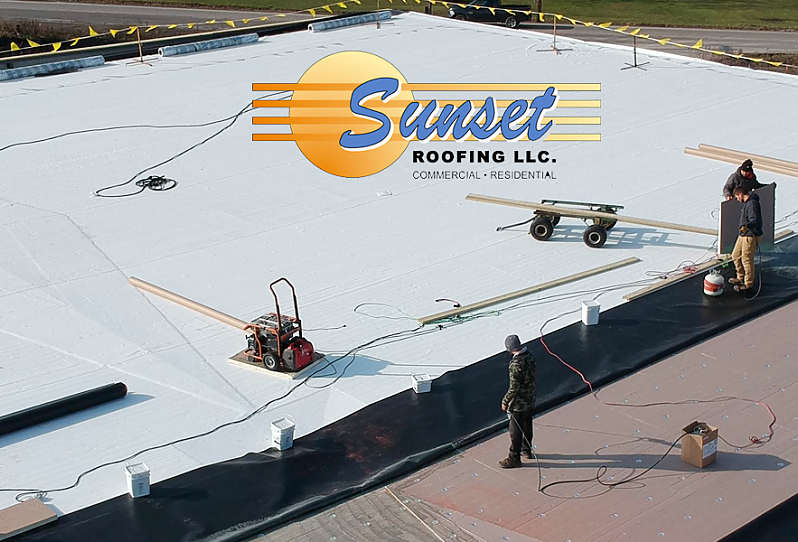Blog
Spray Foam vs. Traditional Insulation: Which is Better for Your Home?
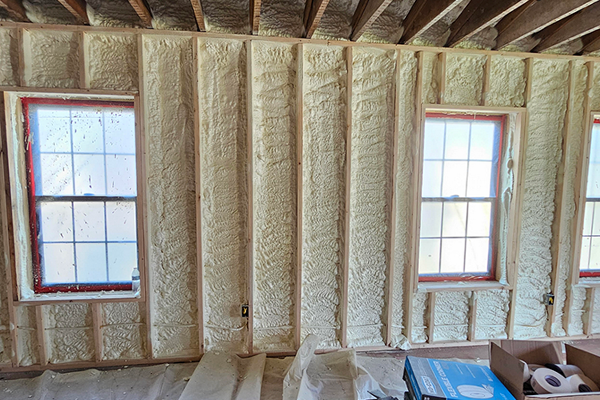
Choosing the right insulation for your home is a critical decision that can impact your comfort, energy efficiency, and overall utility costs. With various options available, homeowners in Rochester, NY, often find themselves deciding between spray foam insulation and traditional insulation materials. At Sunset Roofing, we specialize in closed cell spray foam insulation and are here to help you understand the benefits and differences between these two insulation types.
1. Understanding Spray Foam Insulation
Closed Cell Spray Foam
Closed cell spray foam is a high-performance insulation material known for its superior thermal resistance and durability. It expands upon application to fill gaps and create an airtight seal, providing excellent insulation and moisture barrier properties. Closed cell spray foam is particularly effective in areas prone to moisture and for adding structural strength.
Benefits of Spray Foam Insulation
- High R-Value: Closed cell spray foam has one of the highest R-values per inch, meaning it offers exceptional thermal resistance.
- Air and Moisture Barrier: It creates a continuous barrier that prevents air leaks and moisture infiltration, reducing the risk of mold and water damage.
- Durability: Spray foam does not sag, settle, or degrade over time, ensuring long-lasting performance.
- Energy Efficiency: By creating an airtight seal, spray foam reduces energy consumption and lowers utility bills.
Request a Quote Today!
Experience the benefits of closed cell spray foam insulation. Request a quote today from Sunset Roofing.
2. Understanding Traditional Insulation
Fiberglass Insulation
Fiberglass insulation is one of the most common traditional insulation materials. It consists of fine glass fibers and is typically installed in batts or rolls. Fiberglass is known for its affordability and ease of installation.
Benefits of Fiberglass Insulation
- Affordability: Fiberglass is generally less expensive than other insulation materials.
- Ease of Installation: It is easy to install in various areas of the home, including attics, walls, and floors.
- Non-Flammable: Fiberglass is naturally non-flammable, providing additional safety.
Cellulose Insulation
Cellulose insulation is made from recycled paper products and treated with fire retardants. It is often blown into attics and wall cavities, providing good coverage and thermal performance.
Benefits of Cellulose Insulation
- Eco-Friendly: Made from recycled materials, cellulose is an environmentally friendly option.
- Good Coverage: Blown-in cellulose can fill gaps and cavities more effectively than batt insulation.
- Fire Resistant: Treated with fire retardants, cellulose insulation is safe and effective.
Request a Quote Today!
Explore traditional insulation options for your home. Request a quote today from Sunset Roofing.
3. Comparing Spray Foam and Traditional Insulation
Thermal Performance
Closed cell spray foam insulation offers a significantly higher R-value per inch compared to fiberglass and cellulose insulation. This means better thermal performance and energy efficiency, which translates to lower heating and cooling costs.
Air Sealing
Spray foam insulation excels at creating an airtight seal, preventing air leaks that can compromise indoor comfort and energy efficiency. Traditional insulation materials, such as fiberglass and cellulose, do not provide the same level of air sealing and may require additional air barriers to achieve similar performance.
Moisture Resistance
Closed cell spray foam acts as a moisture barrier, reducing the risk of mold and water damage. Traditional insulation materials can absorb moisture, leading to reduced effectiveness and potential mold growth.
Durability
Spray foam insulation does not sag, settle, or degrade over time, ensuring long-lasting performance. Traditional insulation materials may lose their effectiveness due to settling or damage from pests.
Installation and Cost
While spray foam insulation typically has a higher upfront cost compared to traditional insulation, its superior performance and long-term energy savings can offset the initial investment. Traditional insulation materials are more affordable upfront but may require more frequent replacement and maintenance.
Request a Quote Today!
Decide which insulation is best for your home with expert advice. Request a quote today from Sunset Roofing.
4. Which Insulation is Better for Your Home?
The choice between spray foam and traditional insulation depends on various factors, including your budget, insulation needs, and long-term goals. Closed cell spray foam insulation offers superior thermal performance, durability, and moisture resistance, making it an excellent investment for homeowners seeking long-term energy savings and enhanced comfort.
Traditional insulation materials, such as fiberglass and cellulose, are more affordable upfront and can still provide effective insulation when properly installed. However, they may not offer the same level of air sealing and moisture resistance as spray foam insulation.
Request a Quote Today!
Choose the best insulation for your home with the help of Sunset Roofing. Request a quote today and let our expert team guide you through the decision-making process.
Spray Foam Insulation Services in Rochester, NY
Both spray foam and traditional insulation have their advantages, but closed cell spray foam insulation stands out for its superior performance, durability, and energy efficiency. At Sunset Roofing, we are committed to providing high-quality insulation solutions to homeowners in Rochester, NY.
Request a Quote Today! Contact us to learn more about our spray foam insulation services and find out which insulation option is best for your home. Request a quote today and take the first step towards a more comfortable and energy-efficient home with Sunset Roofing.
‹ Back



